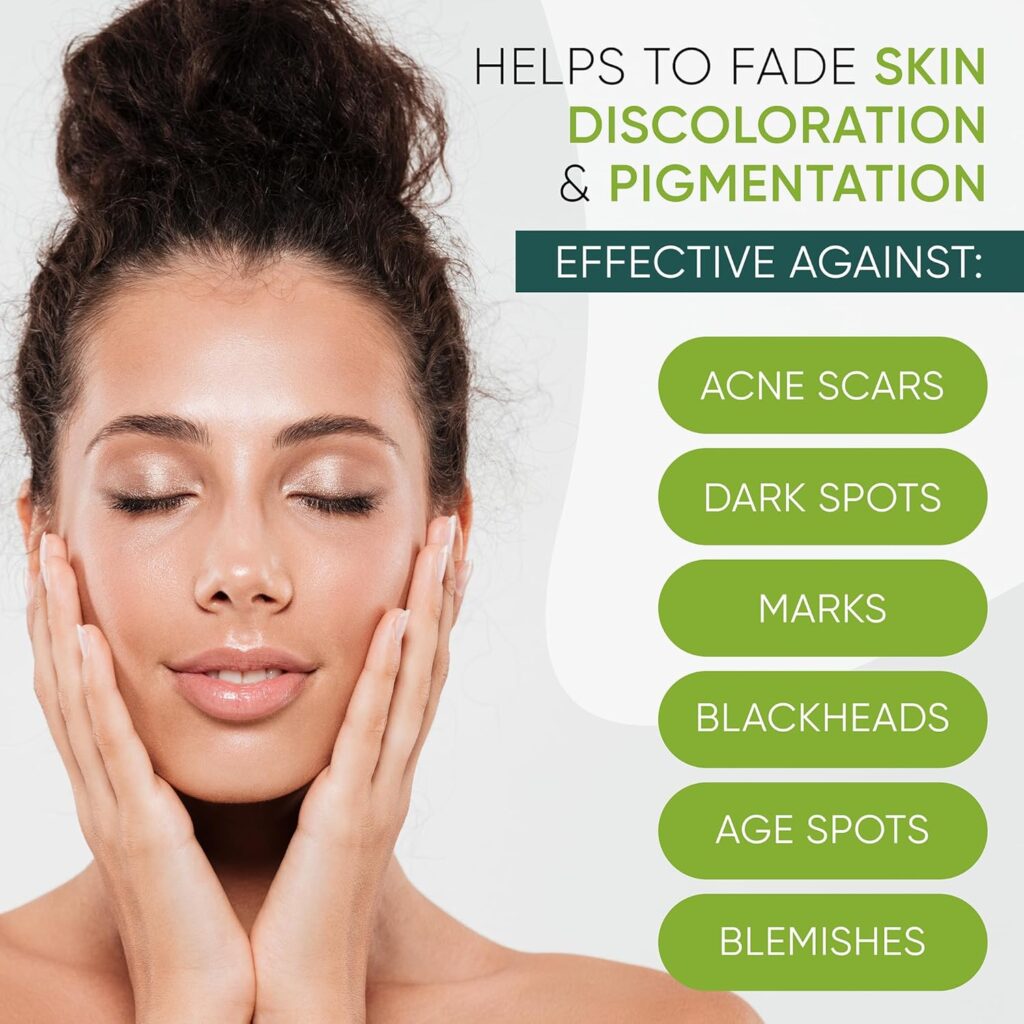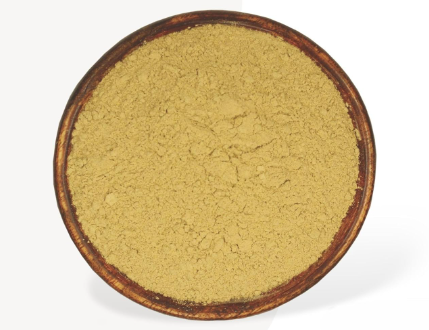How to Use Mulethi Powder for Face Pigmentation: A Guide to Effective Skin Care
Mulethi powder, known for its numerous benefits in skincare, can be a powerful ally in tackling face pigmentation. Using mulethi powder in your skincare routine helps lighten dark spots and promote a more even complexion. This ayurvedic ingredient has been praised for its natural properties that support skin health and enhance your beauty regimen.

Incorporating mulethi powder is simple and effective. You can create face masks by mixing it with common household ingredients like honey or yogurt, making it easy to harness its benefits at home. Understanding how to properly use this natural remedy can lead to significant improvements in your skin’s appearance.
To get the most out of mulethi and address various skin types, it’s essential to explore the right methods and combine them with healthy lifestyle choices. Regular use of mulethi powder can not only help with pigmentation but also boost your confidence in your skin’s health.
Key Takeaways
- Mulethi powder can lighten pigmentation and improve complexion.
- Simple face masks with mulethi are easy to make at home.
- Combining mulethi with a healthy lifestyle boosts skin health.
Understanding Skin Pigmentation
Skin pigmentation refers to the color of your skin, which is determined mainly by melanin. Various factors can affect pigmentation, leading to conditions like dark spots and hyperpigmentation. Understanding these factors is essential for effective treatment and prevention.
Causes of Hyperpigmentation
Hyperpigmentation occurs when melanin production increases, leading to darker patches on your skin. Common causes include sun exposure, hormonal changes, and inflammation.
- Sun Exposure: Ultraviolet (UV) rays stimulate melanin production. This is often seen in sunspots, which are common in people who spend time outdoors without protection.
- Hormones: Conditions such as melasma can occur during pregnancy or as a result of hormone therapy. These patches typically form on the face and can be difficult to treat.
- Inflammation: After injuries or skin conditions like acne, your skin may darken in affected areas, known as post-inflammatory hyperpigmentation.
Role of Melanin
Melanin is a pigment produced by cells called melanocytes. Its main role is to absorb UV rays and protect your skin from sun damage.
- There are two main types of melanin: eumelanin (brown/black) and pheomelanin (red/yellow). The combination of these pigments gives your skin its unique color.
- Your genetic background influences your melanin levels. People with darker skin produce more melanin, resulting in a natural barrier against UV damage, but they can still develop hyperpigmentation.
- Changes in melanin production lead to skin conditions like melasma and dark spots, emphasizing the importance of controlling exposure to triggers.
Common Pigmentation Disorders
Several skin conditions are associated with pigmentation changes. Recognizing these can help in managing them.
- Melasma: This is characterized by brown or gray-brown patches, often linked to hormonal changes and sun exposure. It’s most prevalent in women and can worsen with heat and sunlight.
- Sunspots: Also known as solar lentigines, these are small dark patches caused by prolonged sun exposure. They typically appear on areas exposed to sunlight, such as the face and hands.
- Age Spots: These are similar to sunspots and are commonly seen in older adults due to cumulative sun exposure over the years.
Understanding these pigments and conditions empowers you to tackle skin issues more effectively. With the right skincare, you can minimize the appearance of dark spots and promote an even complexion.
Mulethi in Skincare
Mulethi, also known as licorice root, is a powerful ingredient for improving skin tone and texture. It contains unique compounds that contribute to its benefits in skincare, especially for pigmentation and uneven skin tone.
Benefits of Mulethi for Skin
Mulethi offers several benefits for your skin. It is known for its ability to lighten dark spots and improve overall skin tone. The active compound glabridin in mulethi inhibits melanin production, which helps reduce hyperpigmentation. This can lead to a more even, brighter complexion.
Using mulethi can also hydrate your skin. It helps retain moisture, which is vital for healthy skin. Additionally, mulethi’s soothing qualities can calm irritated skin and reduce redness, making it suitable even for sensitive skin types.
How to use Mulethi Powder for Face Pigmentation, Anti-inflammation and Skin-Brightening Effects
Mulethi has notable anti-inflammatory properties. This means that it can reduce swelling, redness, and irritation on your skin caused by conditions like acne or dermatitis. Glycyrrhizin, another active ingredient in mulethi, works to soothe and heal inflamed skin.
The skin-brightening effects of mulethi come from its ability to reduce the production of melanin. By applying mulethi powder or extract, you may notice a more radiant complexion. Regular use can contribute to a unified skin tone, helping you achieve that flawless look.
Mulethi’s Antioxidant Properties
Mulethi is rich in antioxidants, which help fight free radicals. Free radicals can damage skin cells, leading to premature aging and skin issues. Antioxidants neutralize these harmful agents, promoting healthier skin.
By incorporating mulethi into your skincare regimen, you can harness its antioxidant benefits. This protects your skin from environmental stressors. Using products with mulethi can help maintain your skin’s youthful appearance, making it a valuable addition to your routine.
How to Use Mulethi Powder for Face Pigmentation

Mulethi powder is a powerful natural remedy for face pigmentation. Its skin-brightening properties can help reduce dark spots, while also promoting an even skin tone. Here are various ways to effectively use mulethi powder in your skincare routine.
Preparing Mulethi Face Packs
To create an effective mulethi face pack, you can combine mulethi powder with different ingredients. A popular option is the mulethi face mask made with honey. Mix two tablespoons of mulethi powder with one tablespoon of honey and a teaspoon of milk to form a paste.
Apply this mask to your face, focusing on areas with pigmentation. Leave it on for 20 minutes before rinsing with lukewarm water. The honey helps in moisturizing, while milk smooths the skin.
For an alternative, blend mulethi powder with sandalwood powder and rose water. This mixture not only aids in reducing pigmentation but also has anti-inflammatory properties. Apply it similarly for best results.
Mulethi and Rose Water Toner
You can easily create a mulethi-infused toner that helps balance your skin. Start by mixing one tablespoon of mulethi powder with half a cup of rose water. Let the mixture sit for at least 24 hours to allow the properties of mulethi to infuse into the water.
After straining out the powder, pour the toner into a spray bottle. Use this toner after cleansing your face. It refreshes the skin and may reduce dark spots over time. The toner can also soothe irritation, making it suitable for normal skin types.
Creating Mulethi-Infused Skincare Products
If you’re interested in enhancing your skincare routine, consider making mulethi-infused products. Combine mulethi powder with ingredients like aloe vera gel or orange peel powder to create a nourishing cream or gel.
This blend can be applied daily to fight pigmentation. For added benefits, you might mix Mulethi powder with a bit of turmeric, known for its brightening properties.
Additionally, you can add Mulethi powder to your homemade face scrub for extra exfoliation. Using natural ingredients ensures you avoid harsh chemicals while treating pigmentation effectively.
Combating Different Skin Types and Conditions
Mulethi powder can be effective for various skin types and conditions, helping to address issues like uneven skin tone, pigmentation, and irritation. Understanding how to tailor its use to your specific skin type will enhance your skincare routine and results.
Mulethi for Oily and Acne-Prone Skin
If you have oily or acne-prone skin, mulethi can be a great addition to your skincare routine. Its anti-inflammatory properties help to reduce redness and swelling associated with acne.
Create a face mask by mixing mulethi powder with raw milk and a few drops of apple cider vinegar. This combination exfoliates and helps control excess oil without drying out your skin.
Apply the mask for about 15-20 minutes and rinse with lukewarm water. Use this treatment 2-3 times a week for optimal results. It may help reduce breakouts and improve your skin’s texture.
Treating Sensitive and Irritated Skin
For sensitive or irritated skin, it is essential to use mulethi powder carefully. Start with a patch test to ensure no allergic reactions occur.
Mix mulethi powder with honey to create a soothing paste. Honey is known for its antibacterial properties and can help calm irritation. Apply this mixture gently to affected areas and leave it on for about 10-15 minutes.
Rinse with warm water. This remedy may help reduce redness and inflammation, promoting a more even skin tone while nourishing sensitive skin.
Solutions for Dry and Combination Skin
If your skin is dry or a combination of both, mulethi powder can provide hydration. Combine it with yogurt to create a nourishing mask. Yogurt is rich in lactic acid, which helps to exfoliate and hydrate simultaneously.
Apply the mask to your face, focusing on dry spots, and let it sit for 20 minutes. Rinse it off with lukewarm water.
Using this treatment once or twice a week can improve skin texture, reduce dryness, and enhance the overall glow. This method also helps balance skin moisture levels without over-drying.
Lifestyle and Home Remedies for Pigmentation
To effectively manage pigmentation, you can adopt specific lifestyle habits and use home remedies. Focusing on diet, natural ingredients, and preventive skincare can enhance your skin health, targeting uneven skin tone and skin issues like dark spots and pimples.
Dietary Considerations
Your diet plays a crucial role in skin health. Include foods rich in vitamins and antioxidants. Vitamin C, found in citrus fruits like oranges and lemons, helps brighten your skin and protect against pigmentation.
Consume turmeric, known for its anti-inflammatory properties, to improve your skin tone. Dark leafy greens and nuts are also beneficial as they provide essential nutrients.
Stay hydrated by drinking plenty of water. Aim for at least eight glasses per day. This helps maintain skin moisture, making it look fresh and glowing. Limiting processed foods and sugar is also advisable to reduce skin flare-ups and support overall health.
Natural Ingredients and Home Treatments
Utilizing natural ingredients can significantly combat pigmentation. Aloe vera gel is a popular remedy. Apply it directly to affected areas for soothing effects and hydration.
You can create a face mask with mulethi (licorice) powder and yogurt. Mix one tablespoon of each and apply it for 15-20 minutes. Rinse it off with lukewarm water for an effective skin treatment.
Multani mitti (fuller’s earth) is another effective remedy. It absorbs excess oil and helps brighten your complexion. Combine it with lemon juice and apply it as a mask.
Using turmeric and honey can also help lighten dark spots due to their anti-inflammatory benefits. Regularly incorporating these natural remedies into your skincare routine can lead to noticeable improvements.
Preventive Skincare Habits
Practice good skincare habits to prevent pigmentation issues. Always wear sunscreen with a high SPF, even on cloudy days. This protects your skin from UV damage and helps prevent dark spots.
Be gentle when cleansing your face. Avoid harsh scrubs that can irritate the skin, causing more pigmentation.
Consider using apple cider vinegar diluted with water as a toner. It can help balance skin acidity and improve overall appearance.
Lastly, always moisturize your skin to keep it hydrated and vibrant. Focus on products that promote even skin tone and contain natural ingredients. By maintaining these habits, you can significantly reduce the risk of developing pigmentation.
Frequently Asked Questions
Mulethi powder offers various benefits for skin pigmentation. You might have questions about how to use it effectively, what recipes to try, and how to ensure safe application. Here are some common inquiries along with their answers.
What are the benefits of mulethi powder for skin pigmentation?
Mulethi powder, derived from licorice root, has properties that can help reduce hyperpigmentation. It contains glabridin, which can lighten dark spots and even out skin tone. Additionally, it has anti-inflammatory properties that soothe the skin.
Can licorice powder reduce hyperpigmentation, and how is it applied?
Yes, licorice powder can help decrease hyperpigmentation. You can mix it with a carrier ingredient like honey or yogurt to create a mask. Apply the mixture to the affected areas for 15-20 minutes, then rinse with lukewarm water.
What face pack recipes use mulethi powder for pigmentation issues?
One effective recipe includes mixing mulethi powder with honey. Another option is to combine mulethi powder with yogurt for a moisturizing effect. You can also add turmeric and rose water to combat inflammation and enhance skin lightening.
How does one use mulethi powder safely at home for facial pigmentation?
To use mulethi powder safely, always do a patch test first. Combine it with gentle ingredients like yogurt or honey. Apply the mixture to small areas initially to ensure your skin does not react negatively.
What are the best practices for using mulethi powder on face wrinkles?
For wrinkles, mix mulethi powder with aloe vera gel or coconut oil for added hydration. Apply it to your face, focusing on wrinkled areas. Use these mixtures a few times a week to help maintain skin elasticity.
What are some effective combinations with Mulethi powder for skin whitening?
You can combine Mulethi powder with ingredients like milk and multani mitti for skin whitening. Another option is to mix it with kumkumadi oil for a more nourishing treatment. These combinations enhance the brightening effects of Mulethi while nourishing the skin.

